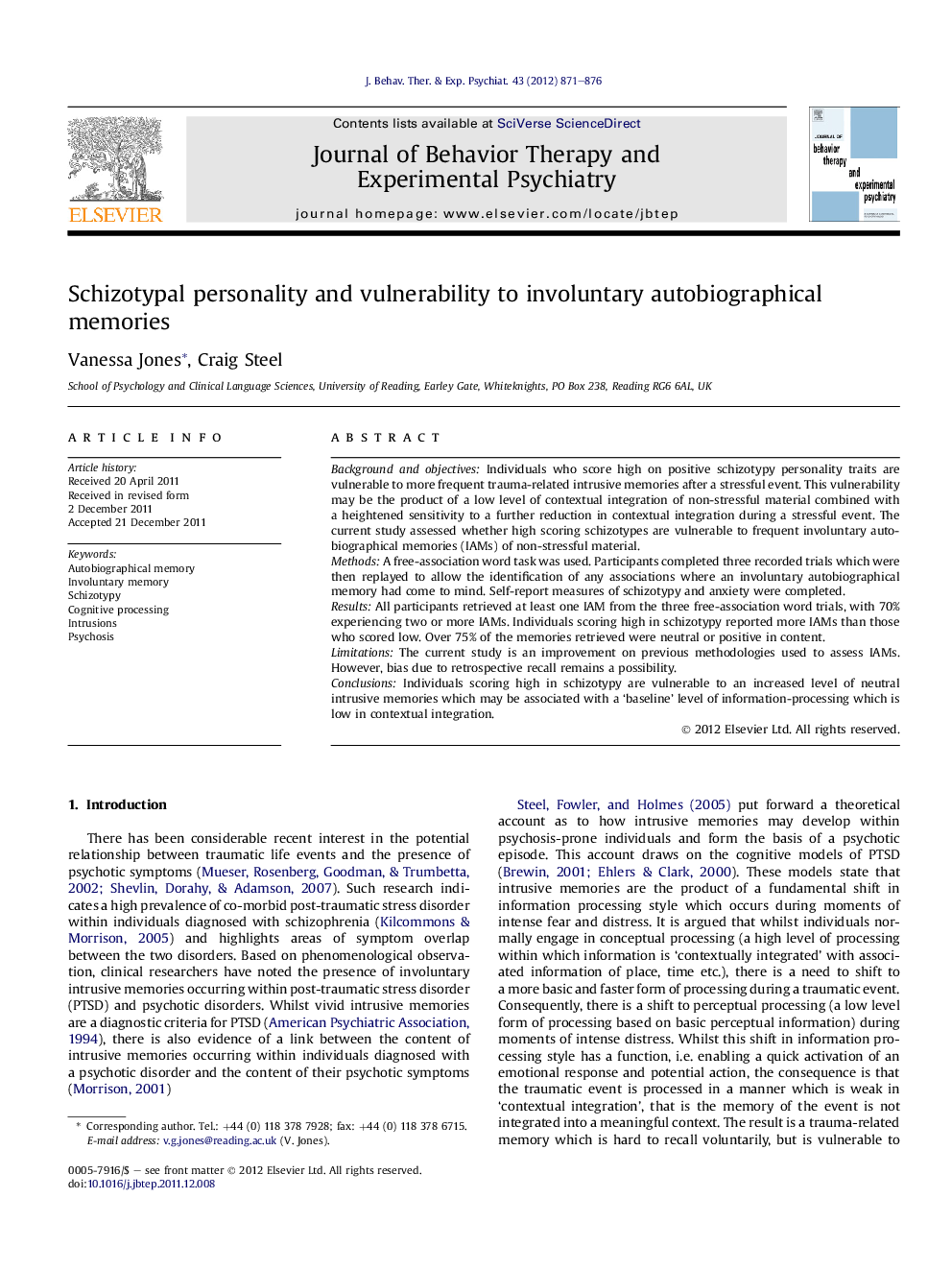| Article ID | Journal | Published Year | Pages | File Type |
|---|---|---|---|---|
| 910390 | Journal of Behavior Therapy and Experimental Psychiatry | 2012 | 6 Pages |
Background and objectivesIndividuals who score high on positive schizotypy personality traits are vulnerable to more frequent trauma-related intrusive memories after a stressful event. This vulnerability may be the product of a low level of contextual integration of non-stressful material combined with a heightened sensitivity to a further reduction in contextual integration during a stressful event. The current study assessed whether high scoring schizotypes are vulnerable to frequent involuntary autobiographical memories (IAMs) of non-stressful material.MethodsA free-association word task was used. Participants completed three recorded trials which were then replayed to allow the identification of any associations where an involuntary autobiographical memory had come to mind. Self-report measures of schizotypy and anxiety were completed.ResultsAll participants retrieved at least one IAM from the three free-association word trials, with 70% experiencing two or more IAMs. Individuals scoring high in schizotypy reported more IAMs than those who scored low. Over 75% of the memories retrieved were neutral or positive in content.LimitationsThe current study is an improvement on previous methodologies used to assess IAMs. However, bias due to retrospective recall remains a possibility.ConclusionsIndividuals scoring high in schizotypy are vulnerable to an increased level of neutral intrusive memories which may be associated with a ‘baseline’ level of information-processing which is low in contextual integration.
► A laboratory task was used to elicit involuntary autobiographical memories (IAMs). ► 48 participants were measured on level of schizotypal traits and number of IAMs. ► People scoring higher on schizotypy retrieved more IAMs than those scoring lower. ► High schizotypal traits relate to increase vulnerability to involuntary memory.
